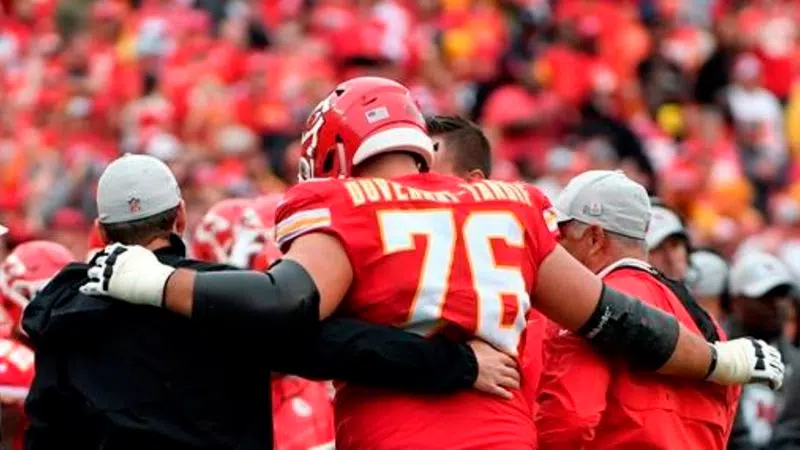
Injury causes Canadian Duvernay-Tardif to change mindset heading into ’19 season
Canadian Laurent Duvernay-Tardif leaned this year just how fleeting NFL success can be.
In May, the Kansas City Chiefs right guard became the first active NFL player to receive his medical degree when he graduated from McGill University. Afterwards, the six-foot-five, 325-pound Duvernay-Tardif celebrated the occasion by posting a photo on Twitter of him wearing a jersey over his gown with “DR Duvernay-Tardif” across the back.
Duvernay-Tardif and the Chiefs began the ’18 campaign impressively, reeling off five straight wins and nine victories in 10 games under first-year starter Patrick Mahomes. But the five-year veteran’s season effectively ended Oct. 7 when he suffered a broken right fibula and ankle injury in Kansas City’s 30-14 win over the Jacksonville Jaguars.


